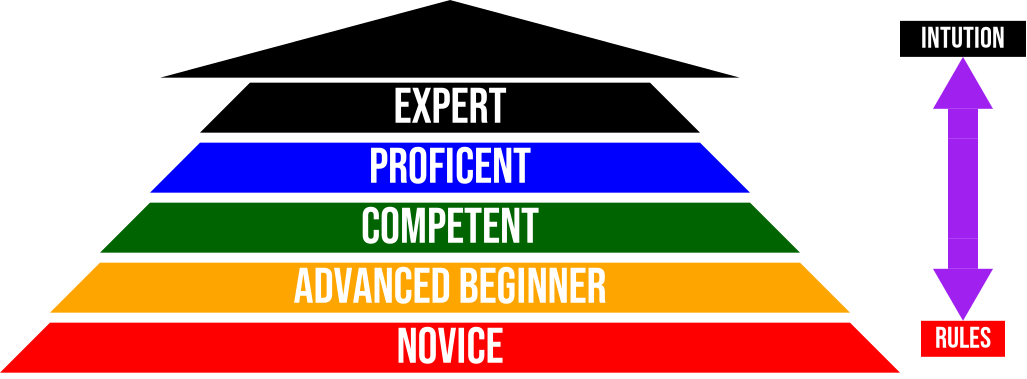Learning Stages

Novice
- Rigid adherence to rules
- They need context-free rules to follow e.g., “Whenever X happens, do Y.”
- They don’t know how to respond to mistakes.
Advanced Beginner
- Advanced beginners work on things on their own relying on their recent experiences and without being given step-by-step instructions.
- When problems arise, they have difficulty troubleshooting.
- They want information fast—without the lengthy theory or without being spoon-fed the basics.
- They start formulating some principles.
- They have no holistic understanding and aren’t that eager about it yet.
Competent
- Competents develop conceptual models of how things work (or should work).
- They can troubleshoot most problems on their own—including those they haven’t faced before.
- They seek out expert advice and are able to use it effectively.
- They are often described as “having initiative” and being “resourceful”.
- They can take on leadership roles or mentor the novices.
Proficient
- Proficient practitioners want to see the big picture.
- They are frustrated by oversimplified information.
- They can correct previous poor task performance, reflect and revise their approach to perform better next time.
- They learn from the experience of others.
- They know when to not follow the plan, and can identify what needs to be done instead.
- They understand and apply maxims, which are proverbial, fundamental truths that have to be applied within a certain context.
Expert
- Experts are the primary sources of knowledge and information.
- They continually look for better ways of doing things.
- They can be amazingly intuitive but may also be completely inarticulate as to how they arrived at a conclusion.
- They know which details to focus on and which details can be safely ignored.
- Know when to deviate from rules
From the book Pragmatic Thinking and Learning: Refactor Your “Wetware”, a summary of Dreyfus model of skill acuisition.